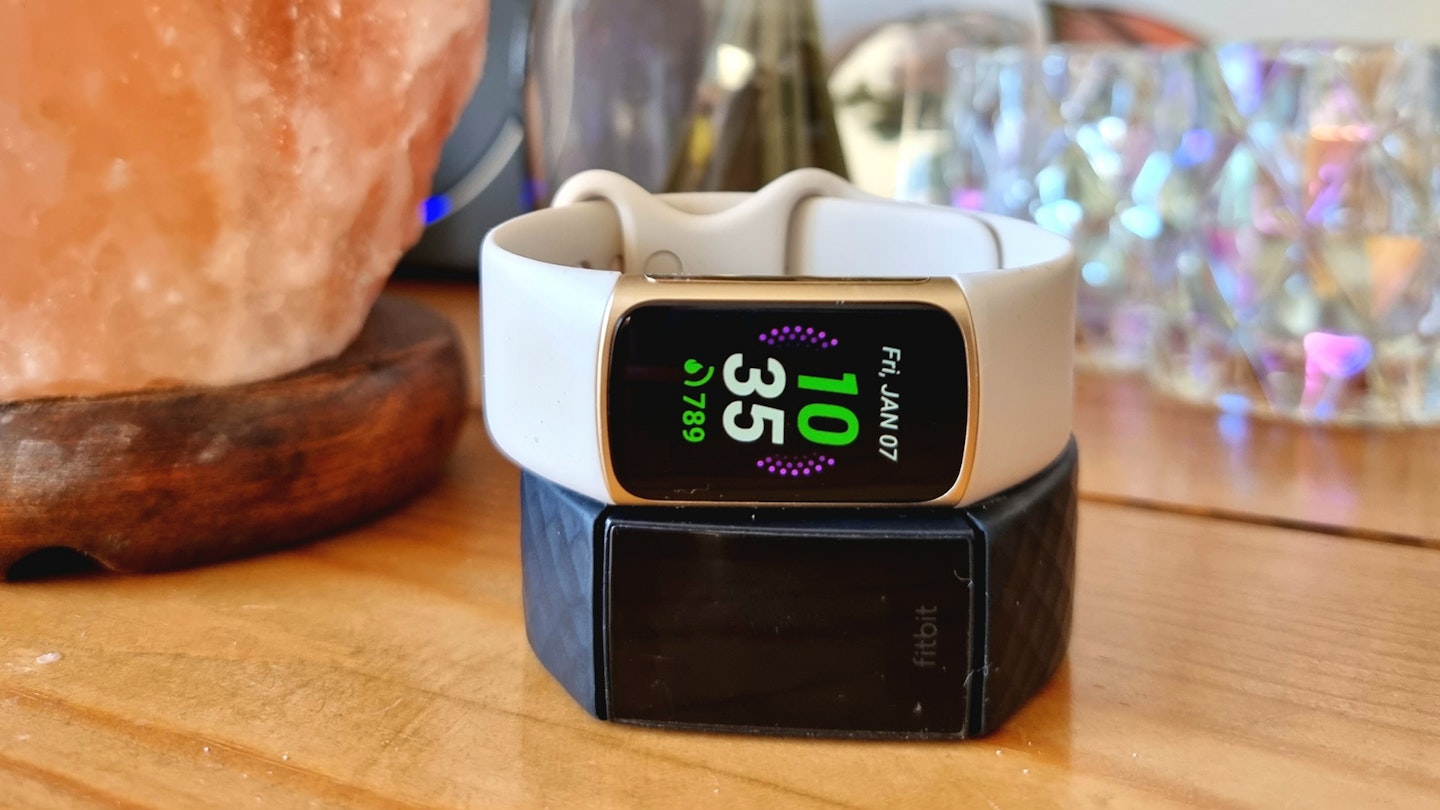Fitbit is one of the main purveyors of wearable smartwatches, and released the newest Fitbit Charge 5 watch in its Charge series in late 2021.
The very first Fitbit Charge arrived way back in 2016, and since then the fitness tech brand has steadily increased its smartwatch offering to include the Fitbit Sense and Fitbit Versa, along with fitness trackers like Fitbit Inspire, Fitbit Luxe and, for children, the Fitbit Ace. The brand has even upped the game for 2022 by teaming up with jewellery brand Gorjana to launch the stylish Gorjana x Fitbit Luxe tracker with a gold chain bracelet-style strap.
If you're looking for plenty of features but not quite an all-singing and-dancing smartwatch, the Fitbit Charge series is a good place to start. Here at Yours, we've put two of the latest watches up against each other to see where you should put your money. Read on to see how the Fitbit Charge 5 compares to its predecessor, the Fitbit Charge 4.
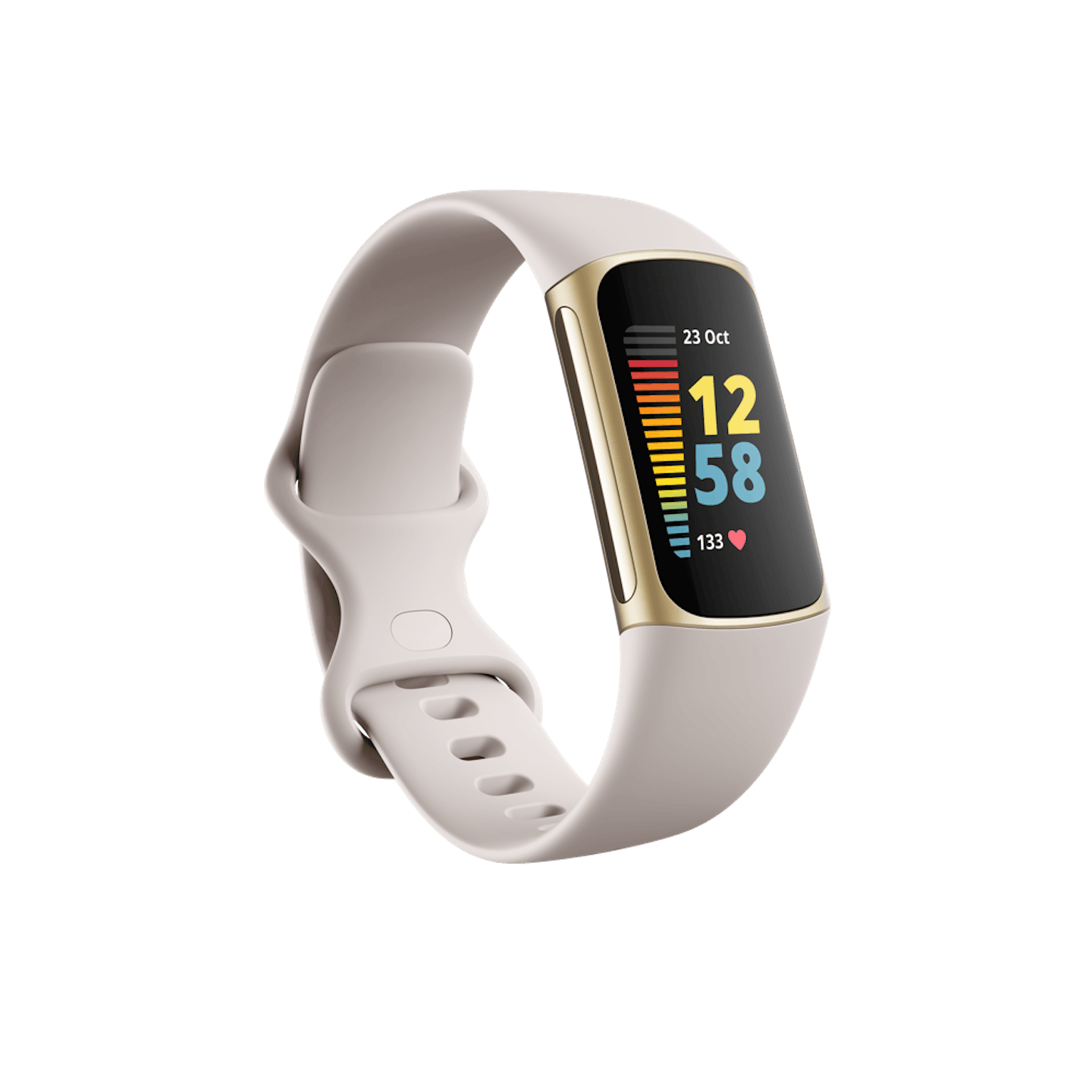
Pros
- Impressive battery life
- Snug watch strap
- Bright OLED screen
Cons
- Touch sensitivity quality
- No buttons
| Touchscreen: | Yes |
| Colour display: | Yes - OLED |
| GPS: | Yes |
| Bluetooth: | Yes |
| Compatibility: | Android and iOS |
| Screen Size: | 26.43mm x 21.93mm x 14.75mm |
| Weight: | 28g |
| Battery life: | up to 7 days |
| Material: | Aluminium and silicone |
| Waterproof: | up to 50m depth |
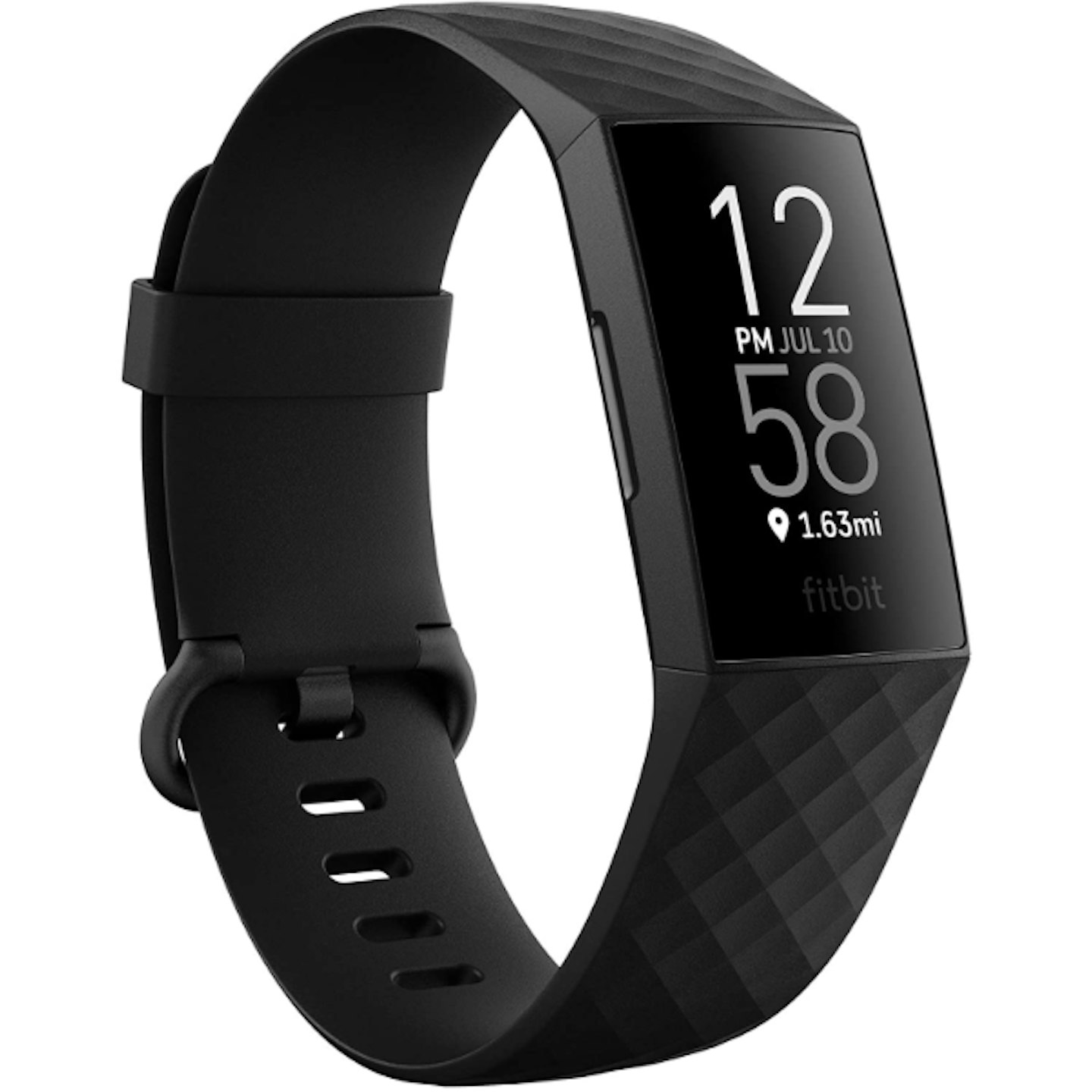
Pros
- Impressive battery life
- Responsive screen
- Buttons
Cons
- Not as sleek in its design
- Greyscale screen
| Touchscreen: | Yes |
| Colour display: | No, greyscale |
| GPS: | No |
| Bluetooth: | Yes |
| Compatibility: | Android and iOS |
| Screen size: | 35.8mm x 22.7mm x 12.5mm |
| Weight: | 27g |
| Battery life: | up to 7 days |
| Material: | Aluminium and silicone |
| Waterproof: | up to 50m depth |
How did this product make your life easier?
The updated design of the silicone strap, as well as a softer material, includes a clever “infinity” closure which is a hole for your strap to be tucked into after you’ve adjusted the size to fit, making it super sleek and snug against your wrist. The Charge 4 has a traditional watch buckle that isn’t awful but compared to the Charge 5, the leftover strap can sometimes come loose and catch on your clothes or weights.
The charging plug also gets an upgrade from the clamp style on the Charge 4 to a magnetic clip. I found with a lot of use, the clamp became stiff and the pins didn’t fit in as easily. The magnet charger clips into place pretty quickly and there’s no need to fiddle or come back and realise your watch wasn’t charging.
A great addition for those who want to keep track of their personal health, are the electrical sensors on the side of the watch for the ECG (Electrocardiogram) and EDA (Electrodermal Activity) Scan function. The ECG app is to keep track of your heart health that assesses your heart for atrial fibrillation - a heart rhythm irregularity – and you can share the results with your doctor. The EDA scan detects electrodermal activity – tiny changes in your skin's sweat level which may indicate your body's response to stress.
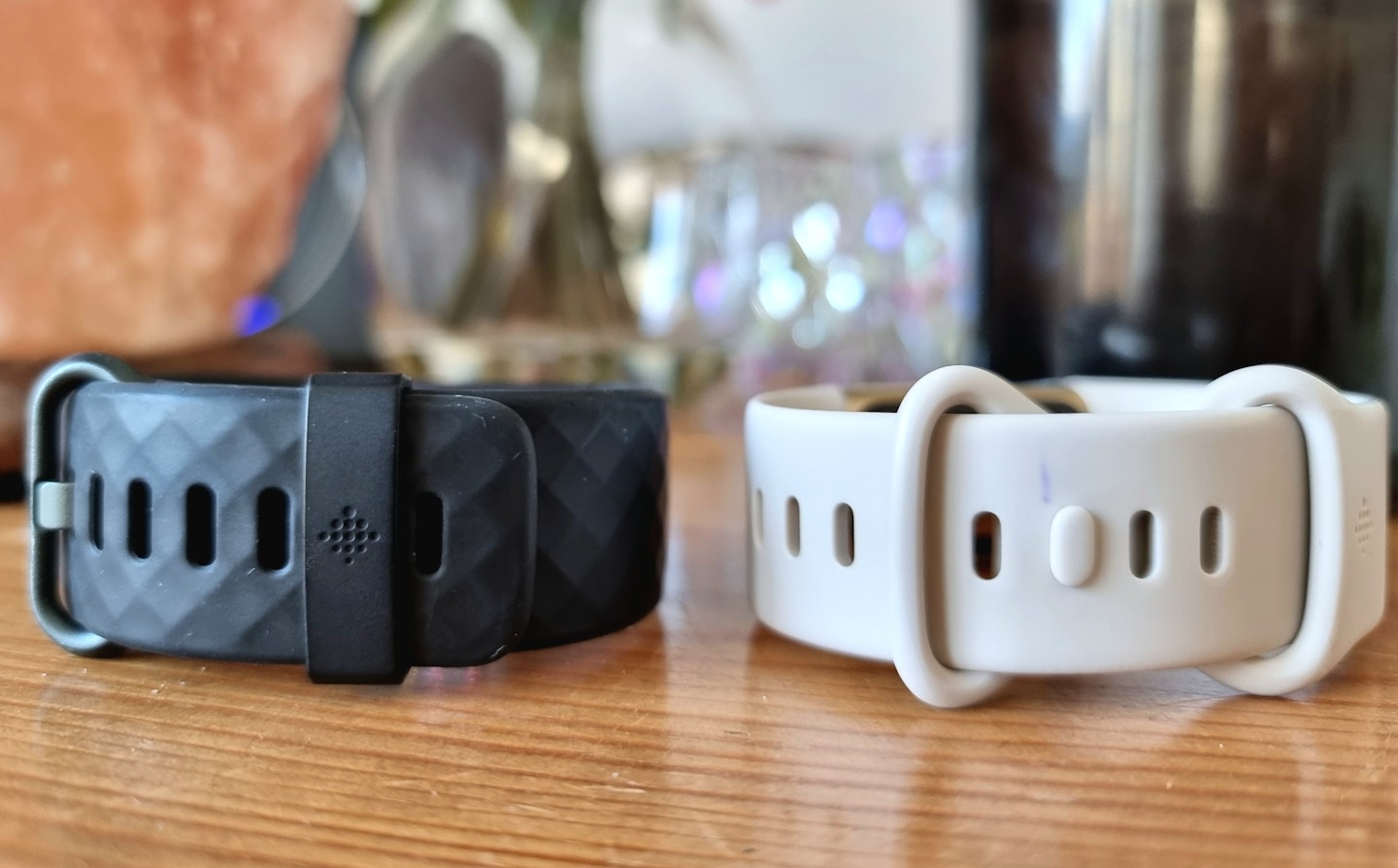
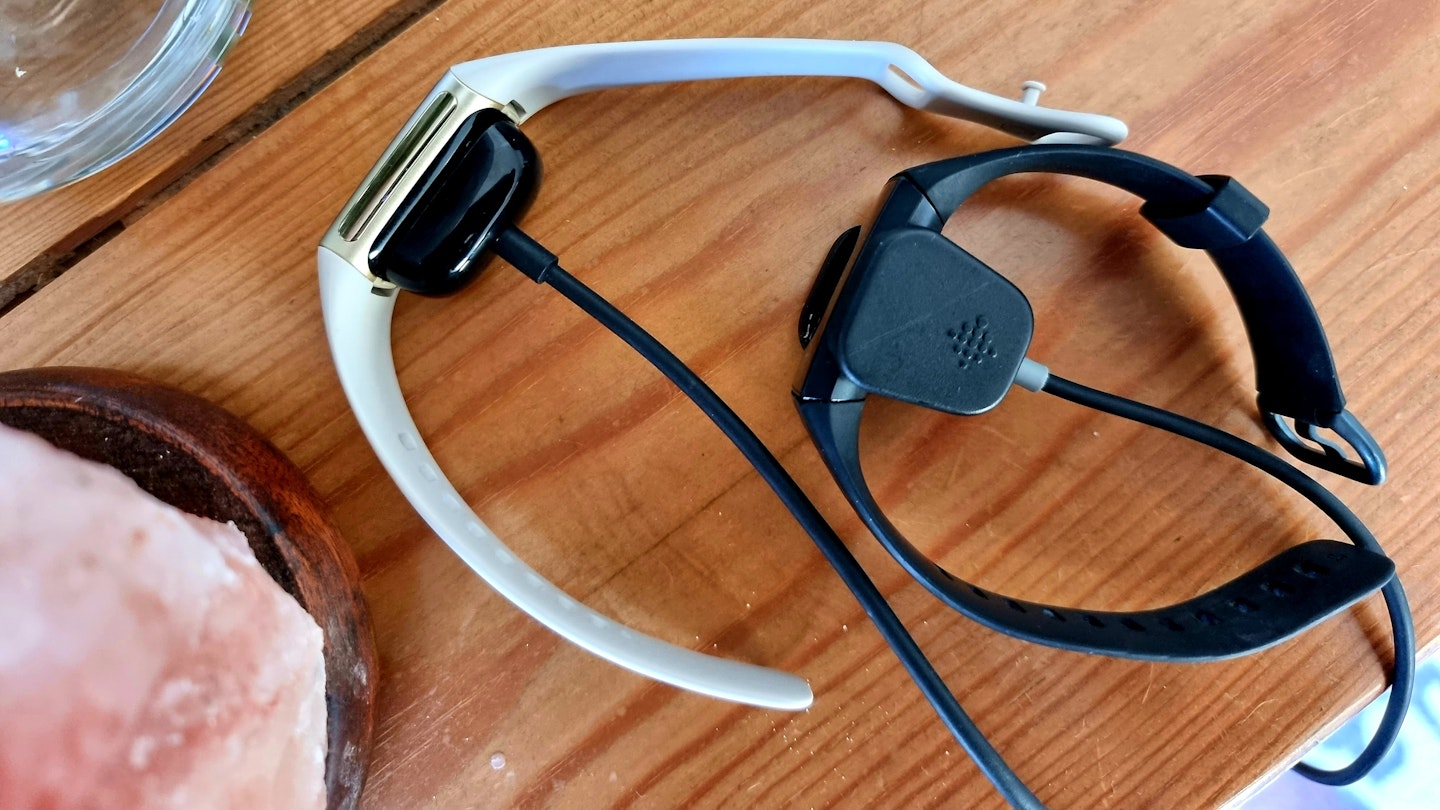
Would you recommend the Fitbit Charge watch?
Yes. Fitbit has upgraded the Charge 5 with a bright OLED colour display that replaces the Charge 4’s grayscale screen. The rounded sleek edge of the OLED colour display makes the Fitbit Charge 5 feel more like a smartwatch than just a regular fitness tracker, but in my opinion, I didn’t have any issue with the Fitbit Charge 4 grayscale, as it was still clear when showing me my workout results, steps, and other functions like setting alarms and timers.
Shop this product
I can’t dispute the impressive new additions of the ECG and EDA features. There are also 20 different workout options you can select from during setup on the companion Fitbit app, including specific exercises like bike riding. The in-built GPS is also great for tracking walks and runs, plotting them on a map with details of split times and heart rate levels at different points.
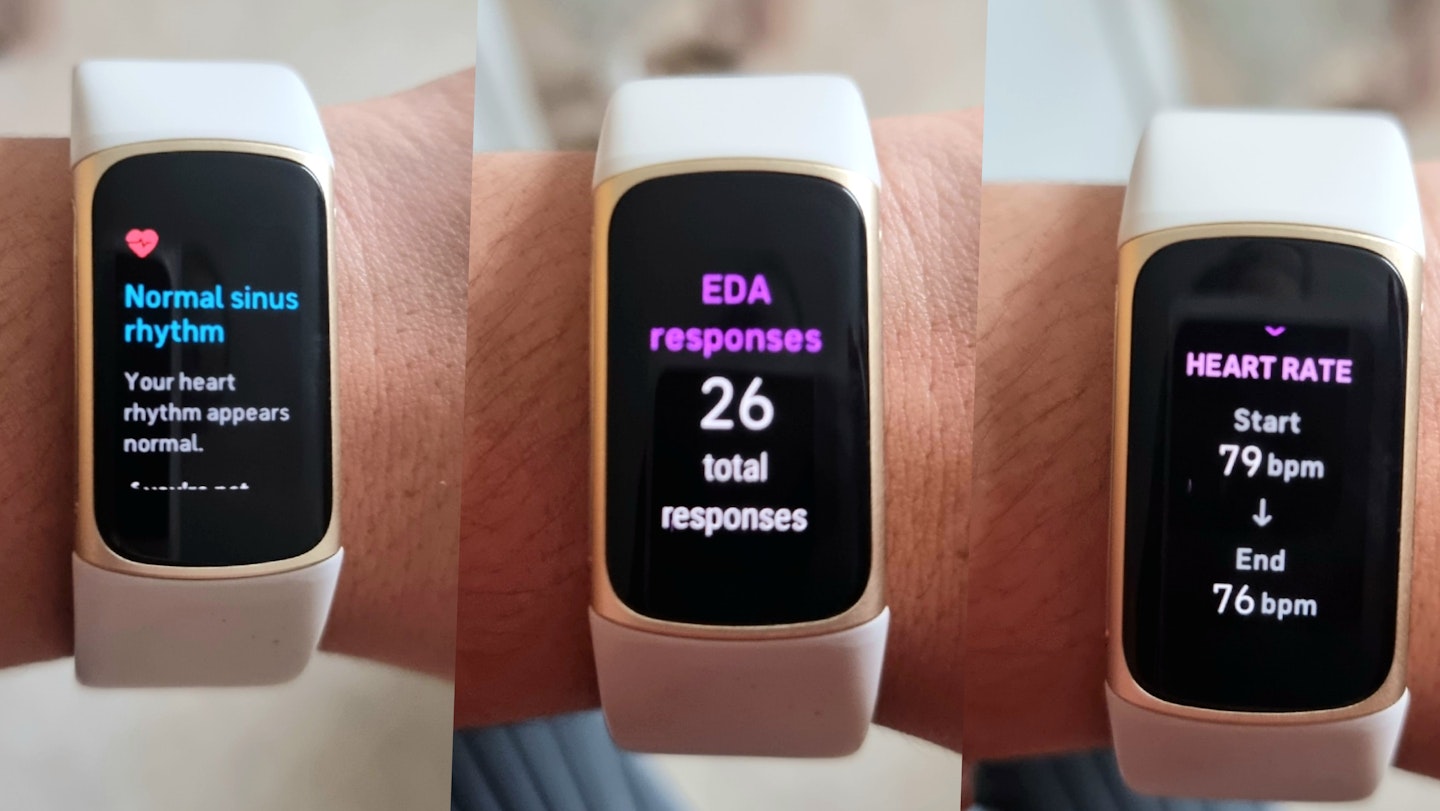
There are plenty of features that have been kept from in the Charge 5 upgrade, however, Fitbit has dropped the option to connect your watch to the Spotify app to control music. Personally, I was never able to connect my Charge 4 to the music app so it’s not a great loss, but for those who prefer running, the loss of quick access could be a negative.
When it comes to tracking your actual workouts both watches are equal, you have the option to switch between heart rate, calories burned, heart rate zone (cardio or fat burn), time, and distance/steps depending on your workout. For a more detailed breakdown of the date, you have to refer to the Fitbit app, where you can find your average heart rate, zone minutes, energy burned and the “impact” it has on your day.
What changes would you make to this product?
Switching from the Charge 4 after using it for almost a year, to the updated Charge 5, I noticed little niggles that I really missed when using the newer model.
The Charge 5 screen doesn’t seem as sensitive to touch as the Charge 4, so swiping between screens really becomes quite a chore. I often got frustrated when trying to quickly start a workout, because the screen takes so long to react. And if I swipe too far, there is no option for me to exit with a button, and I have to swipe all the way back to the beginning to get to the home screen. The Charge 4 has two buttons on the side of the watch that you can press and it gently vibrates to alert you as it flicks between menus. I truly miss this on the Charge 5.
Considering the lack of sensitivity, I’m in favour of the Fitbit Charge 4 over the Fitbit Charge 5, purely because I am an impatient soul and like my technology to be fast and responsive.
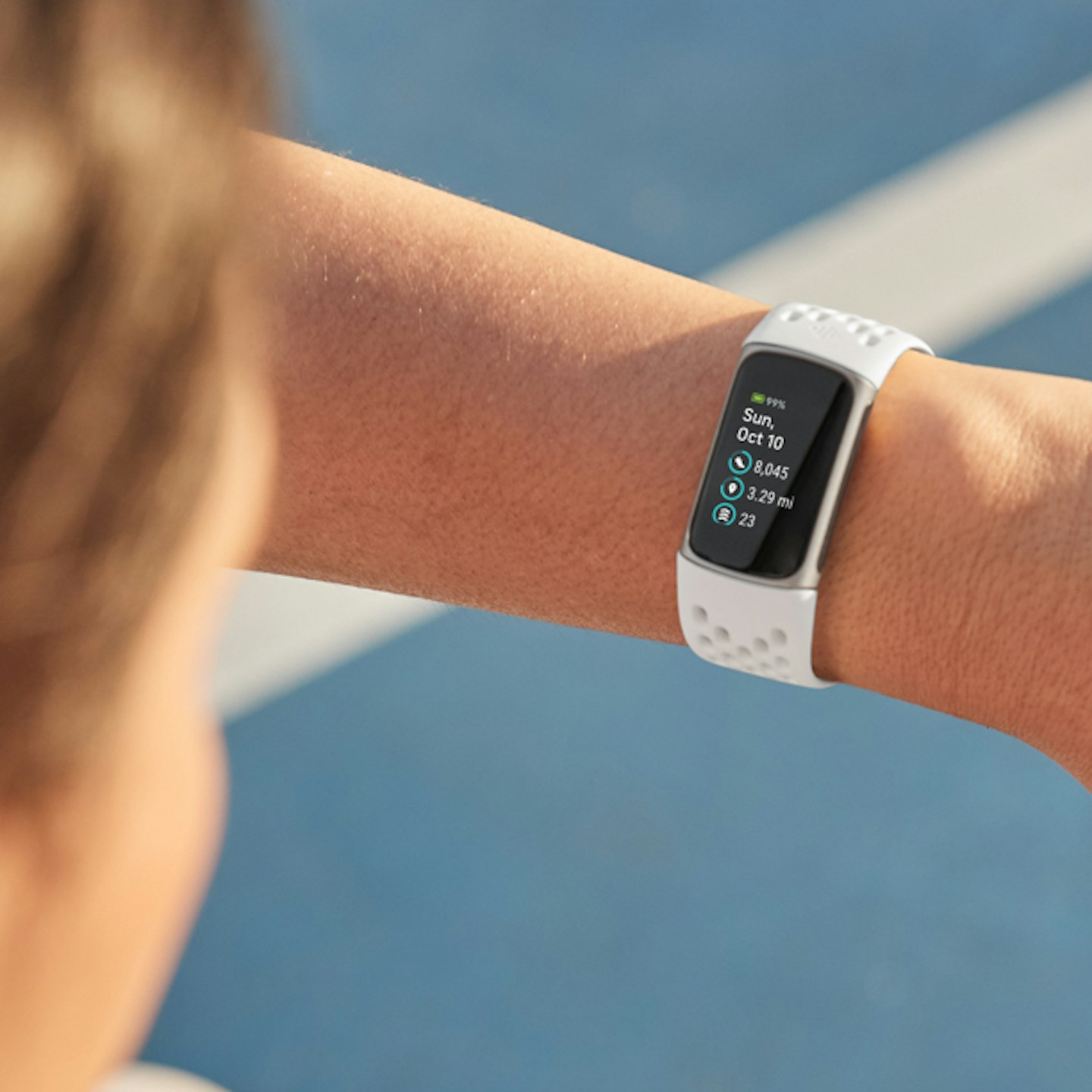
Price: Fitbit Charge 5 vs Fitbit Charge 4
The jump in price between the Fitbit Charge 4 and Fitbit Charge 5 is anything from £30-£50 depending on the retailer you purchase from. The Charge 5 comes with a six-month free trial of Fitbit Premium (usually £7.99 per month), whereas the Charge 4 is three months. You’re effectively saving almost £50 if you opt for the Charge 5, and after the trial period ends it’s your decision whether you find it worth continuing to pay for.
Verdict: Should I buy the Fitbit Charge 5 or the Fitbit Charge 4?
If you are conscious about your health and monitoring your heart rate, without question the Charge 5 is worth it. But if you want to save money and are just looking for a simple tracker for the gym or home workouts, go for the Charge 4, you won’t miss out on the ECG or EDA scans.
Personal preference on style and design, also factors in with the Charge 5 more aesthetically more pleasing on the eye, with its sleek rounded edges, a gold, silver, or black metallic trim and the snug infinity watch strap, not forgetting the OLED colour display are huge bonuses when investing in a fitness tracker.
When it comes to the usability of the Charge 5 and Charge 4, the Charge 4 takes the lead for me. It’s just easier and quicker. It’s simple and straightforward and for those who are just starting out on their fitness journey and there are some great opportunities to pick up a second-hand Charge 4, especially if you look on Facebook Marketplace or other selling platforms, as people often update their tech as soon as the latest releases arrive, and previous models are barely used!
Winner: Fitbit Charge 4 | Score: 5/5

Runner up: Fitbit Charge 5 | Score: 4/5

Natalie Corner is a Commercial Content Editor at Bauer Media. When she’s not weight training, Natalie doesn’t stop talking about hot yoga and reformer pilates, with grippy socks and slip-free mats next on the test list.
